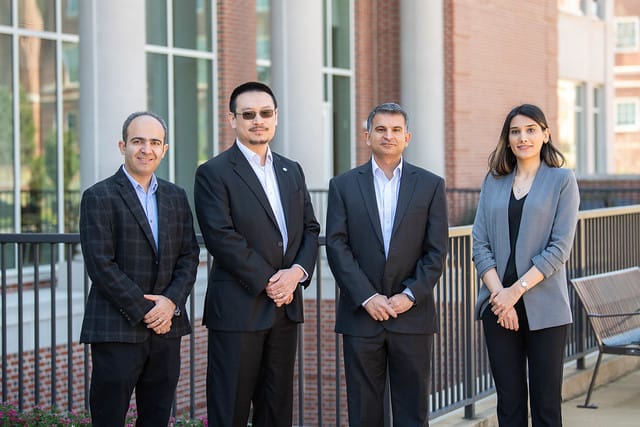Through a recent $4.3 million Army grant, the National Center for Additive Manufacturing Excellence, or NCAME, at Auburn University’s Samuel Ginn College of Engineering will soon initiate a two-year project focused on materials, parts and process qualification, all of which are necessary for furthering the adoption and implementation of additive manufacturing in Army operations.
What does leaders Say?
“Material variation is what I call the ‘Achilles heel’ of additive manufacturing,” said Nima Shamsaei, NCAME director, project principal investigator and the Philpott-WestPoint Stevens Distinguished Professor of mechanical engineering. “It can make the qualification and certification of additively manufactured materials and parts challenging.”
Even more challenging, Shamsaei said, is ensuring the consistency and transferability of process output among different additive manufacturing machines, a project goal that NCAME researchers hope to achieve not only with exhaustive mechanical testing but with AI—machine learning, specifically.
“Machine learning will help us establish structure-property relationships in a much more comprehensive way, which is somewhat transferable among platforms,” said Elham Mirkoohi, co-principal investigator and assistant mechanical engineering professor.
Shamsaei said Mirkoohi’s experience in AI and machine learning applications for additive manufacturing is the newest addition to NCAME’s research repertoire, which continues to draw high-profile government research grants.
“Simulation and machine learning are effective tools to understand the role of microstructure and defects on mechanical properties,” said Shuai Shao, co-principal investigator and associate professor of mechanical engineering.
That understanding can help establish equivalency with less need for extensive experimentation, Shao said.
“This project not only looks into innovative ways to generate materials data, but also emphasizes on transferring the knowledge among different additive platforms by means of establishing equivalency,” said Masoud Mahjouri-Samani, co-principal investigator and assistant professor of electrical and computer engineering.
Aaron LaLonde, who, as a technical specialist for the U.S. Army DEVCOM Ground Vehicle Systems Center, helped facilitate the Army grant, believes the project will be crucial for further integrating AM, or additive manufacturing, into the Army’s modernization and sustainment efforts.
“NCAME,” LaLonde said, “has become one of the main key players in additive research along these lines.”
His comments echo those of Maj. Gen. Darren L. Werner, commanding general of the U.S. Army Tank-automotive and Armaments Command, or TACOM, during the Army Additive Manufacturing Summit hosted by the Samuel Ginn College of Engineering last June.
“The research being conducted here at Auburn is important to the Army because additive manufacturing is going to provide two different capabilities,” Werner said. “It’s going to give us capability in our organic industrial base to integrate advanced manufacturing techniques, and it’s also going to provide deplorability of advanced manufacturing that we can potentially move into a forward location to produce and repair parts for our combat systems.”
Established in 2017 through a public-private partnership between Auburn and NASA, NCAME is also one of the founding partners of the ASTM International Additive Manufacturing Center of Excellence, which aims to close additive manufacturing standards and workforce gaps.
The FAA also recently awarded NCAME $6 million for research toward improving commercial air travel through the use of additively manufactured metal components focused on a commonly used materials in aviation and space, titanium alloys.
Subscribe to AM Chronicle Newsletter to stay connected: https://bit.ly/3fBZ1mP
Follow us on LinkedIn: https://bit.ly/3IjhrFq
Visit for more interesting content on additive manufacturing: https://amchronicle.com/



